Exploring Acupuncture: A Natural Approach to Combat Insomnia
Sleep disorders are on the rise in our modern, fast-paced world, affecting a significant number of individuals worldwide. If you have exhausted all options with over-the-counter drugs or lifestyle modifications to improve your sleep without much success, you might be in search of an alternative solution. Acupuncture for insomnia has become increasingly popular as a natural way to restore sleep equilibrium.
The Ancient Practice of Acupuncture and Its Modern Relevance
Acupuncture is a traditional Chinese medical technique that involves the precise insertion of thin needles into specific points on the body. These points, known as acupuncture points or acupoints, are believed to be interconnected pathways that help facilitate the flow of vital energy, referred to as Qi. By targeting specific acupoints, acupuncture aims to restore the balance of Qi and improve one's overall health.
Acupuncture is rooted in Traditional Chinese Medicine (TCM), which views health as a harmonious equilibrium within the body. This ancient practice has a history of over 2,500 years and has earned global recognition as a respected treatment method. Although abstract, the concept of Qi carries excellent significance in acupuncture. Qi is the essential energy that flows through the body's meridians. When this flow is disrupted, it can result in a range of health problems, including difficulty sleeping.
Modern research has provided compelling evidence supporting the effectiveness of acupuncture, showcasing its ability to stimulate the body's natural healing processes. By stimulating specific points, acupuncture can enhance blood circulation, energise the nervous system, and promote the release of neurotransmitters. Understanding the physiological changes that occur during acupuncture is crucial for fully comprehending its potential in effectively managing sleep disorders. Extensive research has shown that acupuncture has a significant positive effect on sleep quality. It helps to shorten the time it takes to fall asleep and promotes a longer overall sleep duration.
How Acupuncture Helps in Treating Insomnia: A Comprehensive Insight
 Regulating the Sleep-Wake Cycle Naturally
Regulating the Sleep-Wake Cycle Naturally
By leveraging the skills of an experienced acupuncturist, the sleep-wake cycle can be effectively regulated by stimulating endorphins and other neurotransmitters. This technique promotes profound relaxation and enhances the overall sleep experience. Using acupuncture, you can improve your body's energy flow and experience a more tranquil and revitalising sleep.
The sleep-wake cycle, or circadian rhythm, is a vital internal process that governs the natural sleep pattern and wakefulness over 24 hours. Disruptions in this cycle may result in difficulties falling asleep and other sleep-related issues. Acupuncture can influence sleep patterns by targeting specific points, including Shenmen (HT7), Sanyinjiao (SP6), and Anmian.
Located on the wrist, Shenmen, also known as Heart 7, can soothe the mind and relieve anxiety, which is often the underlying cause of insomnia. Situated above the ankle, Sanyinjiao, also known as Spleen 6, is believed to maintain a harmonious state between the liver, spleen, and kidneys. It is said to aid in hormonal balance and stress reduction. Anmian, located behind the ear, plays a crucial role in promoting restful sleep by assisting in falling and staying asleep.
With expert precision, acupuncture effectively stimulates the body's production of melatonin, a crucial hormone that helps regulate sleep patterns. Ensuring optimal melatonin levels can contribute to a well-regulated sleep-wake cycle, improving sleep quality and a rejuvenating morning wake-up.
Reducing Stress and Anxiety Through Acupuncture
Stress and anxiety often cause sleep disruptions. Acupuncture stimulates the parasympathetic nervous system, which can induce a state of relaxation and provide relief from stress. Creating a serene environment that promotes deep relaxation can help you sleep a restful night.
Like an acupuncture expert, the parasympathetic nervous system, also known as the “rest and digest” system, helps conserve energy and facilitates relaxation. Acupuncture effectively targets specific acupoints to help alleviate the body's stress response. Specific points on the body, such as Yintang, Baihui, and Neiguan, have demonstrated remarkable efficacy in relieving anxiety and stress.
Yintang, a commonly used acupuncture point, is well-known for its ability to reduce stress and enhance mental clarity. Baihui, also known as GV20, is renowned for its capacity to induce a sense of calm and harmony in both the mind and body. Neiguan, also known as Pericardium 6, is commonly utilised to alleviate symptoms like anxiety, palpitations, and emotional distress.
By focusing on these specific aspects, the body can naturally release chemicals that enhance mood and induce relaxation. This neurochemical response aids in reducing the heightened state commonly linked to insomnia, facilitating the attainment of peaceful sleep.
 Hormonal Balance: Acupuncture's Role in Regulating Sleep Hormones
Hormonal Balance: Acupuncture's Role in Regulating Sleep Hormones
Hormonal imbalances can cause disrupted sleep patterns. Acupuncture has shown remarkable effectiveness in targeting specific acupoints closely linked to hormonal regulation, specifically the hypothalamus-pituitary-adrenal (HPA) axis. With its deep understanding of rebalancing hormonal systems, acupuncture proves to be highly effective in tackling hormonal disturbances that may lead to insomnia.
The HPA axis is a sophisticated system that entails intricate interactions among the hypothalamus, pituitary, and adrenal glands. It has a profound effect on stress responses and circadian rhythms. Acupuncture can influence the HPA axis by targeting specific acupoints, including Zusanli (ST36), Taixi (KID3), and Guanyuan (CV4).
Located below the knee, Zusanli, also known as Stomach 36, is renowned for enhancing the immune system and alleviating stress. Situated on the inner ankle, Taixi, known as Kidney 3, is frequently utilised to promote kidney balance and regulate hormonal cycles. Located below the navel, Guanyuan, also known as Conception Vessel 4, is crucial in maintaining reproductive and hormonal well-being.
By precisely targeting specific points, acupuncture can regulate cortisol levels, the body's main stress hormone. Excessive stress has the potential to disrupt sleep patterns by leading to increased levels of cortisol. With its remarkable ability to regulate cortisol and other stress hormones, acupuncture can potentially restore a natural sleep cycle, improving both the duration and quality of sleep.
Addressing Underlying Health Issues That Cause Insomnia
Insomnia can be a sign of various health conditions, including chronic pain, digestive disorders, or respiratory issues. Through the precise placement of needles, acupuncture effectively addresses underlying conditions by targeting specific points within the body. Addressing the underlying cause is key to effectively resolving sleep disruptions.
Various chronic conditions can cause insomnia. Having a deep understanding and vast experience in the field, I am well aware of the challenges that individuals with chronic pain face when trying to find a comfortable sleeping position. Furthermore, discomfort during the night may arise from digestive disorders like irritable bowel syndrome (IBS), whereas interrupted sleep can result from respiratory problems such as sleep apnoea.
With a deep understanding of acupuncture, individuals can effectively alleviate chronic pain by focusing on essential points such as Ashis points, which indicate pain, and specific meridian points like Jianjing (GB21) and Hegu (LI4). Paying attention to the Tianjin pressure point on the shoulders can be highly effective when relieving tension headaches and neck pain. Located on the hand, Hegu is commonly utilised to alleviate pain and reduce inflammation.
Zhongwan (CV12) and Tianshu (ST25) are two acupuncture points frequently used for digestive disorders. Located on the upper abdomen, Zhongwan is essential for ensuring optimal stomach function and relieving indigestion symptoms. Tianshu is situated near the navel and can help promote bowel movements and relieve digestive discomfort.
By identifying and treating these underlying health issues, acupuncture has proven to be highly effective in alleviating symptoms and promoting a greater sense of well-being, leading to improved sleep quality.
 Enhancing Sleep Quality: How Acupuncture Promotes Deep, Restorative Sleep
Enhancing Sleep Quality: How Acupuncture Promotes Deep, Restorative Sleep
Acupuncture can potentially enhance both the onset and overall quality of sleep. Research has indicated that acupuncture can benefit the production of melatonin, a hormone that plays a vital role in regulating sleep patterns. Enhance your sleep quality for a more revitalising and peaceful rest. Experience the refreshing advantages of beginning your day with fresh energy and vitality.
Getting a good amount of deep or slow-wave sleep (SWS) is essential for rejuvenating the body and mind. Throughout this stage, the body repairs tissue strengthens the immune system and solidifies memory. Acupuncture can improve sleep quality by targeting specific points, stimulating the production of melatonin, and supporting the body's natural sleep processes.
Specific acupuncture points, such as Yin Tang, Si Shen Cong, and An Mian, are highly effective in enhancing sleep quality. Located between the eyebrows, Yin Tang is widely recognised for its soothing properties. Enhancing cognitive function and reducing mental fatigue can be achieved by incorporating Si Shen Cong, a technique focusing on four points near the top of the head. Understanding the importance of An Mian in relation to sleep patterns is crucial.
Studies have shown that consistent acupuncture sessions can positively affect different aspects of sleep. These include shortening the time to fall asleep, lengthening sleep duration, and enhancing overall sleep quality. These benefits arise from how acupuncture helps regulate the autonomic nervous system, decrease hyperarousal, and support the body's natural sleep-wake cycle.
Frequently Asked Questions
Is acupuncture painful?
Acupuncture is typically a pleasant and tolerable experience. The needles used are thin, resulting in minimum pain. People usually describe the sensation as a tingling or a little ache.
How many acupuncture sessions are required for treating insomnia?
The number of acupuncture treatments depends on the severity of insomnia, health, and responsiveness. A typical therapy comprises weekly sessions for many weeks and occasional maintenance sessions.
Are there any side effects of acupuncture for insomnia?
Most people agree that acupuncture is a safe treatment choice by a trained professional. People may sometimes have mild side effects, like brief pain or bruising at the site where the needle was inserted. If you choose a qualified acupuncturist, you can be sure that the treatment will be safe and successful.
Can acupuncture be used alongside other sleep-promoting methods?
Indeed, acupuncture may dramatically improve sleep quality. It works with other beneficial strategies, including relaxation, sleep hygiene, and lifestyle changes. Incorporating acupuncture with these approaches can boost overall efficacy, improving the likelihood of resuming a good sleeping pattern.
Is acupuncture suitable for everyone with insomnia?
An increasing number of people think that acupuncture is a safe way to treat people, even those who have trouble sleeping. However, people with certain medical conditions, like blood problems or weak immune systems, might be unable to use it. It is essential to talk to an experienced acupuncturist who can look at your case and give you specific help.
Brought To You By:
Sources:
1. Mayo Clinic. (2021). Acupuncture. Retrieved from https://www.mayoclinic.org/tests-procedures/acupuncture/about/pac-20392763
2. Spence, D. W., Kayumov, L., Chen, A., Lowe, A., Jain, U., Katzman, M. A., … & Shapiro, C. M. (2004). Acupuncture increases nocturnal melatonin secretion and reduces insomnia and anxiety: a preliminary report. The Journal of Neuropsychiatry and Clinical Neurosciences, 16(1), 19-28. doi:10.1176/appi.neuropsych.16.1.19
3. Shergis, J. L., Ni, X., Jackson, M. L., Zhang, A. L., Li, Y., & Guo, X. (2016). A systematic review of acupuncture for sleep quality in people with insomnia. Complementary Therapies in Medicine, 26, 11-20. doi:10.1016/j.ctim.2016.02.004
The Article: Acupuncture for Insomnia – Restoring Sleep Balance appeared first on Acupuncture Walton-le-Dale

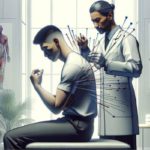


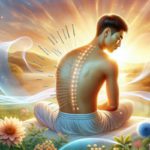
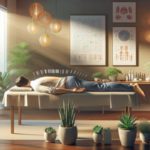

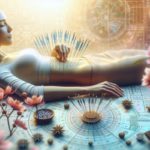

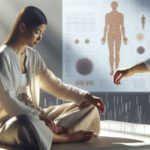
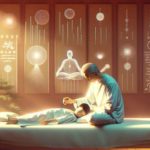



Your exploration of acupuncture as a remedy for insomnia resonates deeply with many of us navigating the complexities of modern life. I’ve personally witnessed the challenge of falling into a restful sleep, especially amidst the demands of work and technology that seem relentless. As our world increasingly relies on quick fixes—whether through sleep aids or lifestyle hacks—approaches that encourage us to reconnect with our bodies and natural rhythms become vitally important.
I completely understand where you’re coming from. The demands of modern life can feel quite overwhelming, and it’s fascinating how our relationship with sleep has shifted. It’s astonishing how technology is designed to keep us engaged, often at the expense of our well-being. I’ve found it challenging to carve out time for self-care amidst deadlines and notifications.
You’ve hit the nail on the head! It’s like we’re all starring in a never-ending reality show called “How Many Notifications Can You Ignore Before You Break?” And self-care? That’s turned into a scavenger hunt where the prize is five minutes of peace between Zoom calls.
You really hit the nail on the head with that. It’s wild how our tech keeps us plugged in all the time, right? It’s almost like there’s an unspoken competition to see who can stay busy the longest, and self-care just gets left behind. I’ve had to get pretty creative about carving out time, whether it’s setting boundaries with notifications or just blocking off an hour for something that’s all about me, no distractions. Finding that balance is tough, but even small steps can make a difference. Have you found any strategies that help you pause and reset?
You make a really good point about the unspoken competition to stay busy. It’s almost like we’ve internalized this notion that our worth is tied to our productivity, and it’s hard to step off that hamster wheel sometimes. I’ve found that setting boundaries is crucial, too—I recently turned off non-essential notifications and noticed a big difference in my ability to focus.
The exploration of acupuncture as a remedy for insomnia really resonates with me. Having struggled with sleep issues myself, I turned to various methods, including mindfulness practices and herbal teas. While these approaches brought some relief, I still found myself yearning for a deeper solution. It’s fascinating to consider how ancient practices like acupuncture are gaining modern relevance, particularly when our fast-paced lifestyles often lead to increased stress and imbalance.
It’s interesting to hear about your journey through sleep issues and the different methods you’ve explored. In our high-stress world, finding effective solutions for insomnia can be quite a challenge. Mindfulness practices and herbal teas are excellent starting points. They not only aim to calm the mind but also create a more peaceful evening routine. It’s evident that you’re putting in the effort to embrace holistic approaches, which is commendable.
“I’m glad to hear that acupuncture resonates with you! If you’re interested in exploring how it might fit into your sleep journey, check out this resource to learn more about its potential benefits.”
https://mcrtherapies.com/fb
It’s great to hear how you’ve navigated your own journey with sleep issues. Turning to mindfulness practices and herbal teas shows a commitment to exploring holistic methods, and it’s encouraging to see how various approaches can offer different levels of relief. The quest for a deeper solution is something many of us relate to, especially in today’s fast-paced world where stress can easily overshadow well-being.
Reading about acupuncture’s role in addressing insomnia resonates with me on multiple levels. It seems that so many people today are struggling with sleep. Occupational pressures, screens at every turn, and just the hustle of everyday life seem to keep us in a constant state of overstimulation. I know I’ve fallen into the trap of trying every sleep aid under the sun, from herbal teas to sleep masks, and still found myself tossing and turning at 3 a.m.
It’s striking how many people are caught in the whirlwind of modern life, with the constant pull of screens and the demands of work making it difficult to find calm in the chaos. Your experience with various sleep aids really highlights the frustration so many of us feel when facing insomnia. It can feel like a never-ending cycle of trying to find that elusive solution, especially when the remedies seem to promise so much but deliver little.
You’ve really captured the essence of what many of us are experiencing these days. The constant barrage of notifications and the pressure from work can feel overwhelming, almost like we’re all on a treadmill we can’t get off. I’ve found that finding calm amidst this chaos often requires intentional effort, whether that’s setting aside screen-free time in the evenings or creating a ritual around preparing for bed.
It’s so true how the constant barrage of notifications can make us feel like we’re stuck on that treadmill. I’ve definitely found myself getting caught up in that cycle, and it can be exhausting. Your approach of setting aside screen-free time in the evenings really resonates with me. I’ve recently started implementing a similar routine—just unwinding with a book or some music before bed instead of scrolling through my phone. It’s surprising how effective that can be in creating a sense of calm.
You’ve captured a real challenge that many of us face. The pace of modern life and constant stimulation can feel overwhelming, making quality sleep a rare commodity. It’s interesting how we often turn to quick fixes, like sleep aids, hoping for a miracle, only to find ourselves back at square one—wide awake in the dead of night.
It’s really interesting how common insomnia has become, especially in our fast-paced modern world. You mentioned the pressures and screens we face daily, and I’ve found that they can create this almost endless loop of overstimulation. Sometimes, it almost feels like we’re caught between the world we live in and our bodies’ natural rhythms.
You’ve hit on something really profound about the clash between our modern lifestyle and our natural rhythms. It’s fascinating how we’ve built this environment that demands so much from us—screens flashing, notifications chiming, and the endless stream of information. It creates an atmosphere thick with overstimulation, almost like we’re living in a perpetual state of alertness.
You’ve raised such a crucial point about how our modern lifestyle can sometimes feel at odds with our natural rhythms. I often find myself reflecting on the ways we’ve constructed this world that’s so often at odds with what our bodies and minds really need.
I really appreciate your insights on acupuncture and the struggle with insomnia. It’s interesting how widespread this issue has become as our lives get busier and more connected. The constant barrage of screens and information really does keep our minds buzzing, doesn’t it? I find that when I attempt to unwind in the evening, it can feel like my brain is still in work mode, scrolling through tasks and worries.
I found your exploration of acupuncture for insomnia really fascinating. It’s interesting how in our digital age, where quick fixes like sleep meds seem so accessible, traditional practices like acupuncture are gaining popularity again. It makes you wonder if we’ve come full circle in our quest for better sleep.
Isn’t it fascinating how we often overlook ancient practices in favor of quick-fix pills that tend to leave us groggier than a bear in hibernation? I’ve flirted with insomnia myself—more often than I’d like to admit. Once, I counted sheep so long that I accidentally intertwined their fate, creating a riveting plot twist ready for my next novel! The idea of turning to acupuncture instead of resorting to a nightly pill cocktail certainly sounds promising.
Your exploration of acupuncture as a solution for insomnia resonates deeply with me. I’ve experienced firsthand how challenging it can be to find effective remedies for sleep disorders in a world that often prioritizes instant solutions. After trying various over-the-counter medications without success, I turned to acupuncture on a friend’s recommendation. Initially hesitant, I was surprised by how much it helped not only with my sleep but also with my overall sense of well-being.
Your exploration of acupuncture as a remedy for insomnia taps into a crucial conversation about our reliance on pharmaceutical solutions in an increasingly stressed society. While I appreciate the historical context you provided, I’m curious about how this practice aligns with contemporary understandings of sleep science.
You hit the nail on the head about acupuncture and that pesky sleepiness we all wrestle with in this high-stress life. The truth is, acupuncture isn’t just about needles and mumbo jumbo; it’s like that wise grandparent at a family gathering, full of old-school remedies that strangely seem to work.
You really captured something meaningful there. Acupuncture does have that vibe of traditional wisdom, doesn’t it? It’s interesting how in our fast-paced world, we often overlook these “old-school remedies” that have stood the test of time. I think many people associate health and wellness with the latest tech or modern medicine, but sometimes the simplest approaches can be the most effective.
You really captured the essence of acupuncture in that comparison. It’s interesting how something that seems so simple can have such profound effects on our well-being. I’ve experienced that same sense of calm when I leave a session, almost like being wrapped in a warm blanket of serenity amidst the chaos of everyday life.
It’s fascinating how something as seemingly simple as acupuncture can weave its way deeply into our lives. That warmth—what you’ve beautifully described as a “warm blanket of serenity”—is something many of us seek, especially in the whirlwind of our daily routines. Walking out of a session, it’s as if the noise of the world drops away, and we’re left with a clearer mind and a lighter heart.
Your thoughts on the reliance on pharmaceuticals in our modern, fast-paced world resonate deeply, especially when considering how acupuncture fits into the broader conversation about sleep. It’s fascinating to see how ancient practices can echo in contemporary discussions about health.
“I completely agree—balancing historical practices with modern sleep science is vital. If you’re interested in diving deeper into how acupuncture can complement contemporary approaches to insomnia, I invite you to explore this insightful resource.”
https://mcrtherapies.com/KetoBreads
It’s so interesting to see acupuncture being viewed as a viable solution for insomnia! I actually tried it a few years ago when I was struggling to sleep. While I was initially skeptical, my sessions really helped in resetting my sleep pattern. I think there’s something to be said about adopting ancient practices in our modern lives, especially with the overwhelming reliance on pharmaceuticals these days.
Your exploration of acupuncture as a remedy for insomnia invites a critical examination of not just the efficacy of this ancient practice, but also the broader context of how we approach sleep disorders in our modern society. As someone who has grappled with sleep issues for years, I find the discussion around alternative therapies particularly resonant, especially given the overwhelming cultural tendency to resort to pharmacological solutions.